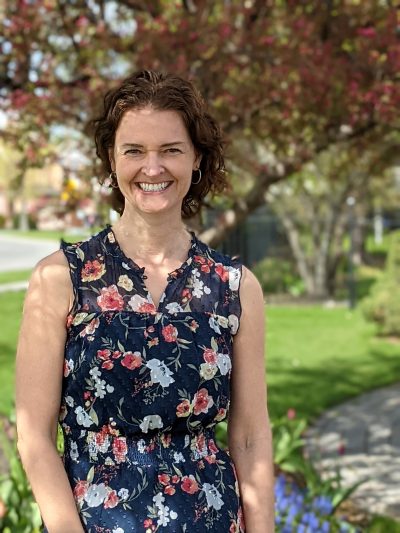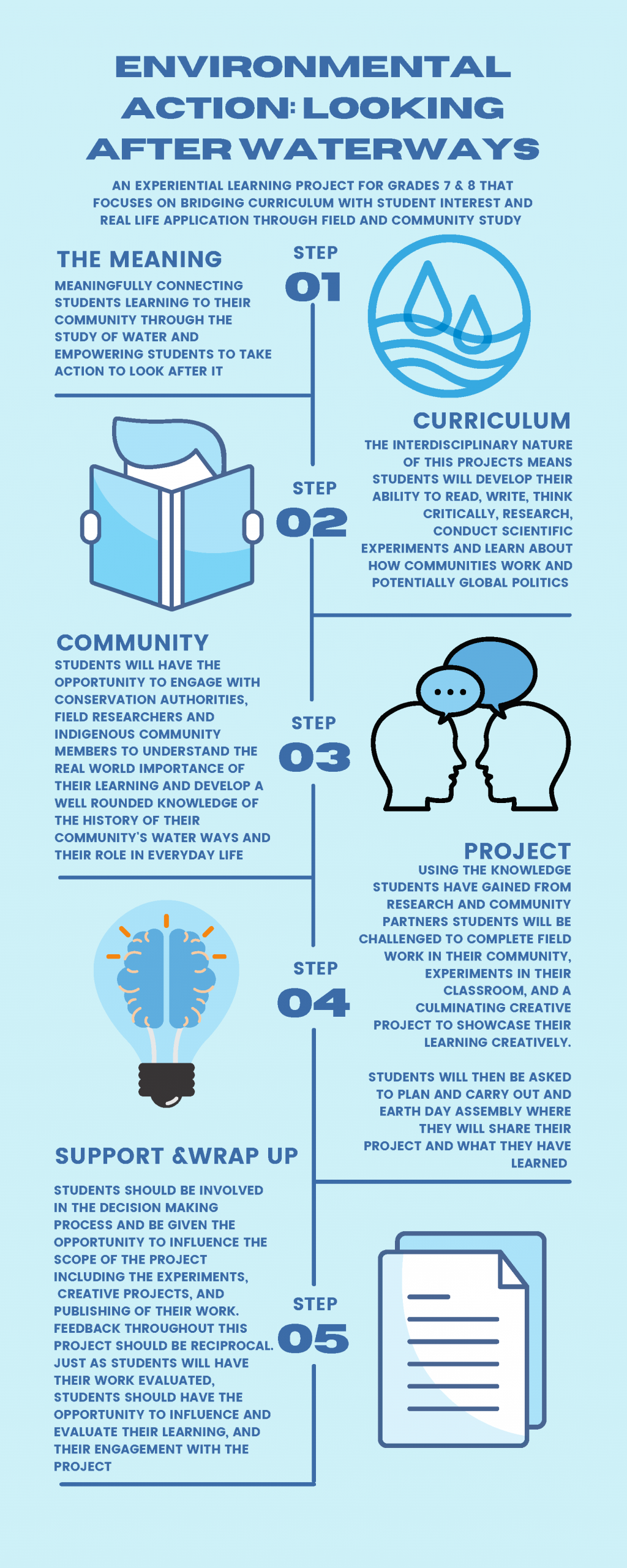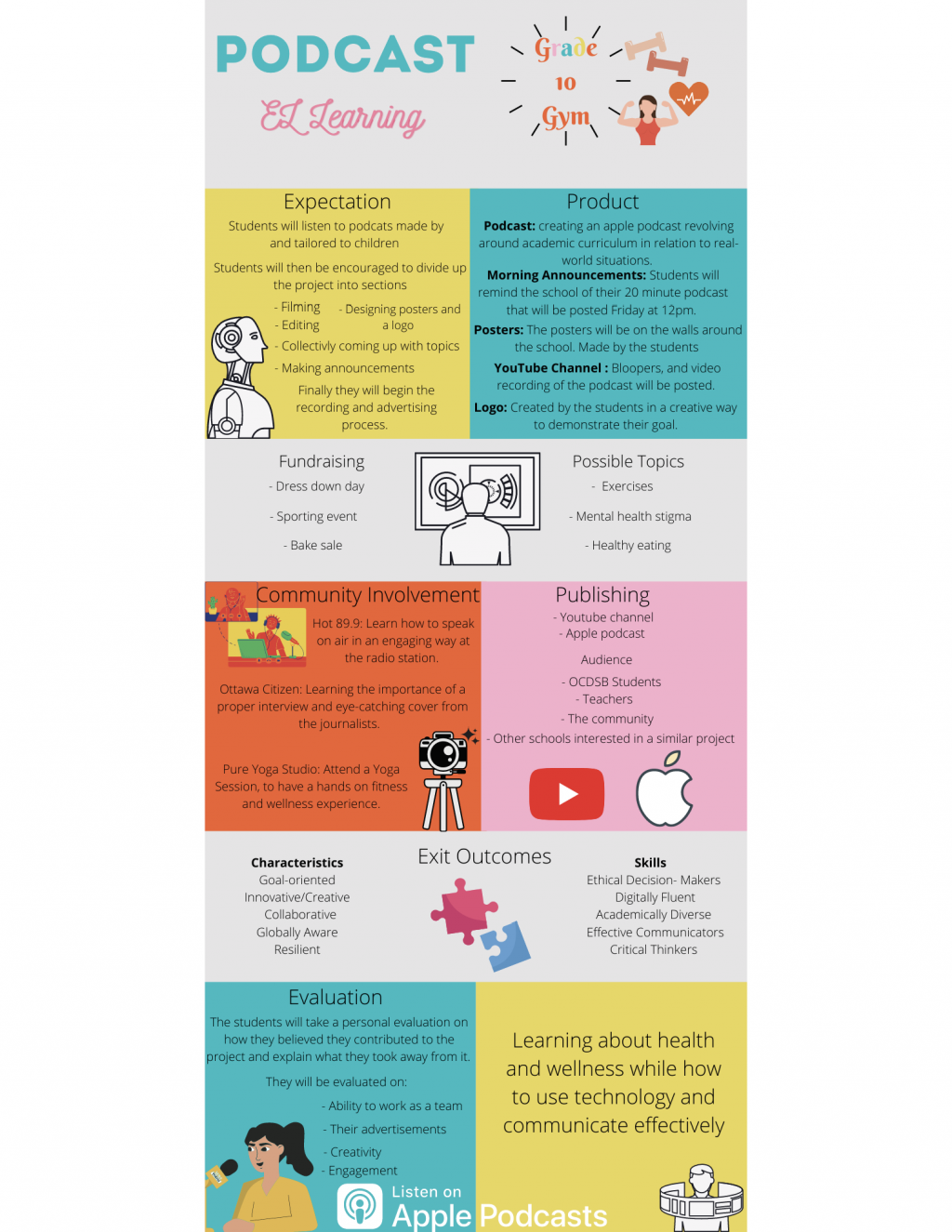Sociology Instructor Helping to Build Foundations for Future Educators
By Nick Ward

Dr. Kathleen Moss builds courses that help her students build their resumes.
Moss, an Adjunct Research Professor and Contract Instructor in Sociology and Anthropology, believes that, throughout the university experience, students should be compiling and refining their knowledge and critical skills while concurrently assembling impressive portfolios. Portfolios that will help them achieve their post-undergraduate ambitions.
“I want my students to be thinking not only of their current selves, but their future selves, and so I aim to have them walk away from my courses with something tangible to build upon; a robust skill set,” she explains.
Moss encourages her students to be excited and confident about their journey.
“As instructors, we need to captivate students and provide enhanced learning experiences, so they are motivated and have a good handle on who they are and what they want from their programs and the university experience.”
“University coursework can help cultivate self-knowledge that can lead to more meaningful and fulfilling lives and career pathways.”
As part of her approach, Moss engages her students with community partners and stakeholders relevant to their coursework and interests. This tactic fosters a unique undergraduate learning experience and vitalizes industry connections for students that could be instrumental for them down the road.
The overarching teaching paradigm used by Moss is called the Future Skills Innovation Network (FUSION) online curriculum. FUSION aims to innovate and improve educational experiences and outcomes, encourages self-reflection and evaluation, and helps promote skill development for a rapidly evolving world and workplace. It also facilitates a philosophy of inclusive education and collaboration between teacher and learner which is conducive to deeper learning.
“The FUSION curriculum offers sociology students the opportunity to increase their knowledge in effective learning styles, assess common skills in communication, perfect presentation skills, understand learning styles of a good problem solver, and assist with creating a career portfolio.”
Her spring 2021 experiential learning minded course, Sociology of Education, serves as a great exemplar of her innovative teaching and learning processes.
Studies in the Sociology of Education
Moss’s third-year Sociology of Education course which occurred this past spring, mostly comprised of students who plan to pursue graduate Bachelor of Education degrees to become career educators themselves. To help firm up her students’ odds, Moss works in concert with colleagues in Ottawa University’s B.Ed. Program and the Ottawa-Carleton District School Board.
For the course, students were tasked with creating their own teaching philosophy statement and a portfolio that included a lesson planning assignment they had to complete as their final project.
As part of the assignment, Moss asked her students to assume the role of a teacher at a grade level of their choice and then create their own empowering project for their imagined students, including its scope, outcomes, community involvement, and how it would be evaluated.
To accomplish this, students utilized the Experiential Learning Planner, created by Ottawa-Carleton District School Board Superintendent of Instruction, Eric Hardie and modified by Experiential Learning Facilitator, Cam Jones. The planner acts as an educational template facilitating student-led purposeful projects. It also allows instructors and students to think about the design process and project areas such as finding a meaningful topic, course expectations, the scope of the work, grant writing, community-connected partnerships, outcomes, and more.
With courses migrating to online formats due to COVID-19, teaching practices and pedagogy have had to readjust and adapt. “One way to increase student engagement and motivation among third-year university students is to make curricular connections and to offer students autonomy and dialogue rather than overloading with content,” says Moss, who was astonished by the quality of work and depth of reflection her students submitted while working remotely.
“My students rose to the challenge and completed top-notch work this term. The calibre of writing skills, critical thinking, synthesizing, analyzing, and student reflections exceeded my academic expectations.”
One student group created a podcast designed for any high school gym class that might examine issues around body images, maintaining a healthy lifestyle, and promoting mental health and wellness. Another group created an assigment for an intermediate class that focused on an environmental action project that would support our waterways through engagement with conservation authorities, field researchers and Indigenous community members. At the conclusion of this project, students would host an Earth Day assembly.

“Seeing my student’s thoughtfulness and dedication come together for the final project was a gratifying experience as an instructor,” says Moss. “They got it, and now they can include this project in their portfolios when applying to a B.Ed program, & it will serve as evidence that they are capable and creative prospective educators,” she says.

The Path to Teaching and Reshaping Education
It is clear that Moss has wholly dedicated herself to innovative approaches in education, but this is not the arena of sociology that began her academic work.
Moss received her undergraduate degree in Sociology at King’s College at Western and then went on to complete both her Master’s and PhD in Sociology here at Carleton.
Amazingly, she has been teaching at Carleton ever since, while also working for two years as a Research Officer with the Ottawa-Carleton District School Board. Having logged two decades at Carleton, she is a pillar in the Department of Sociology and Anthropology.
When she started instructing as a PhD candidate back in 2004, her research and teaching centred on the sociology of the family and violence against women.
Although Moss remains very interested in those fields, the possibility of revolutionizing education courses in sociology captured her imagination. She was compelled to examine what the landscape might be like for innovative experiential learning at the post-secondary level.
This interest stems from Moss’s belief that louder student voices and more skill development should be encouraged in post-secondary education. Two-way learning invigorates critical thinking and creativity in students, says Moss.
“I really try to listen to my students and forge relationships with them. I am interested in their academic and career goals.”
“It can just take a single teacher to spark students, to incite a passion. Passion pulls people in and is infectious. An instructor who cares can lay the foundation for success and open up doors that were previously unavailable or inaccessible.”
To the naysayers, who fear academic rigour would be sacrificed if universities prioritized core competencies or career pragmatism, Moss suggests that experiential learning can only enhance the overall learning experience.
“From my experience, if students see connections between what they are learning and the applicability to job market skills, they are far more likely to be motivated and invested, which helps build student agency in course work and leads to successful learning outcomes. For these reasons, it is important to incorporate these contexts into our practice and to equip students with global competencies and career development skills. In my experience, students overwhelmingly tend to agree with this.”
Take Sarah Lamanne, now a fourth-year student in Childhood and Youth Studies, for example. Lamanne says the Studies in the Sociology of Education course helped her understand the components and complexity of the education system. She believes the course helped to broaden her academic and career-based skills through the FUSION curriculum.
I also gained a deeper understanding of how important being a lifelong learner is and learned about adapting to a growth mindset, which is a concept I hope to apply to my own life.
Fourth-year student Sarah Lamanne
“Dr. Moss did an incredible job providing her students with an introductory understanding of what education looks like through a sociological lens and assured that students’ comprehension of all concepts was more profound by the end of the term. She is a joy to work with, and her positive energy is to be applauded. Her dedication to research in sociology and education and her drive, passion, and focus on student learning and achievement should be recognized.”
“I look forward to taking her SOCI 4860, The Sociology of Teaching and Learning, K-12 course in the early spring semester and also working with her through the Students as Partners Program offered by Carleton this summer,” says Lamanne.
Student Alyssa Contant echoes Lamanne’s sentiments.
“Dr. Moss was caring, expressive and interesting, making the class very enjoyable. Her assignments contributed to our improvement as writers and potentially future educators.”
“As students, it is visible to us that she puts time and effort into the course through her attention to detail and presentations, thus motivating us to improve our skills. This course was incredibly valuable to me as a future teacher, and I would encourage anyone to take any of her classes in the future,” says Contant.
Getting Recognized
Moss’ cutting edge teaching is getting recognized by more than just her students.
Moss and Dr. Jessica Whitley of the Faculty of Education at the University of Ottawa were recently selected as recipients of a 2021 Shared Online Projects Initiative grant.
With this funding, Moss and Whitley will further enrich the relationship between Carleton and the University of Ottawa by joining forces to design a progressive fourth-year undergraduate course in the sociology of education at Carleton. The duo will also modify an existing graduate course in the Faculty of Education at the University of Ottawa titled Inclusive and Special Education.
This partnership will allow students to explore practical teaching, and learning strategies, and theory and research. Additionally, it will allow students from both universities to engage in shared reading groups and develop a podcast that will tremendously benefit Carleton students looking to follow in their now-peers’ footsteps.
Impressively, Moss has also received a CI Teaching Innovation Grant and was successful with student Sarah Lamanne in applying to the 2021 Teaching and Learning Services Students as Partners Program. Starting May 2021, Moss and Lamanne will investigate innovative teaching and learning strategies in the field of education by developing new online educational modules that explore how to action experiential learning through practice, process, and product.
Finally, Moss has helped create an online exhibition module for Ottawa-Carleton District School Board High School classes exploring the exhibition To Be Continued: Troubling the Queer Archive, which features local Ottawa artists in the IBPOC & 2SLGBTQ+ community. The online modules explore materials such as photos, beadwork, pop culture, and recycled materials that reflect the intersectionality of the artists’ lived experiences. Guided by Fiona Wright, educator at the Carleton University Art Gallery, these modules examine the historical roots of activism through representation, agency, and rights.
While Moss continues to push the envelope by developing new and interactive forms of teaching and learning across Carleton University and beyond, her core objective remains the same – to help students achieve their goals.
“Listening, learning and leadership are important qualities in the instructor-student relationship. If I can inspire my students to be better learners by fostering their self-knowledge and helping them work towards transferable skills, I know I have succeeded as an instructor. Understanding that the knowledge and skills gained in my courses will help prepare students for future courses and career paths is the driver behind my teaching practice.”
Third-year student Kathleen Capson reflects on her experience in the Sociology of Education, and the impact Moss has had on her as a soon to be graduating student.
“Professor Moss not only teaches theory in an engaging, supportive, and collaborative manner, but she makes sure her lessons have value.”
All of the work assigned had evident real-life benefit and application which provided students with the opportunity to develop a multitude of skills while completing assignments.
Third-year student Kathleen Capson
“Dr. Moss goes the extra mile for her students,” says Capson.
Student Portfolios
- Take the Stand: Jordana Sternthal Ayah Ikkawi Alissa Bento Mona Eldali Tyanna Wright Meegan Couturier
- Environmental Action: Looking After Waterways
- Colorful Bold Bright Impact of Charity Activities Infographic